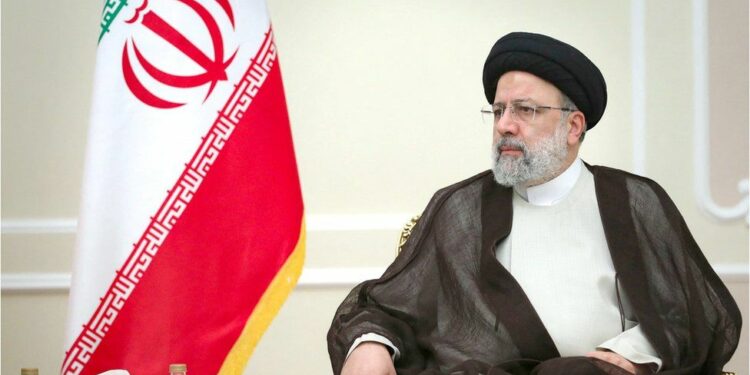The sudden death of Iranian President Ebrahim Raisi in a helicopter crash has sent shockwaves through the global oil market, with experts predicting a potential spike in oil prices.
Raisi’s demise has raised concerns about the impact on Iran’s oil production and exports, which could lead to volatility in the market.
Nigeria’s crude oil grades, including Brass River and Qua Iboe, have already seen gains, with prices reaching $86.60 per barrel on Monday. This increase is attributed to the uncertainty surrounding Iran’s oil policy following the president’s death.
Nigeria’s oil futures, Brass River and Qua Iboe, recorded gains on Monday following the news that a helicopter with Iran’s president on board had crashed and both he and the country’s foreign minister died.
On Monday, Brass River, a sweet medium light crude, gained 0.70 percent to trade at $86.60 per barrel, while the Qua Iboe, a light sweet crude grade, also gained 0.70 percent to trade at $86.60 per barrel.
Analysts believe that the death of the Iranian president could cause disruptions to the country’s oil production, which could affect global oil supplies and prices. However, some experts suggest that the oil market may remain relatively stable due to existing supply capacities, particularly with the Organisation of the Petroleum Exporting Countries (OPEC) and its allies scheduled to meet on June 1.
“From here, we expect overall market fundamentals to improve and see similar inventory draws and price action as observed last summer, with Brent oil moving $10 higher from current levels by September,” JPMorgan analysts wrote in a note late Sunday.
Iranian President Ebrahim Raisi, a hardliner and potential successor to Supreme Leader Ayatollah Ali Khamenei, died in a helicopter crash near the Azerbaijan border, according to officials and state media.
Despite Raisi’s death, Bloomberg reports that analysts expect Iran’s oil policy to remain unchanged as Khamenei retains ultimate authority over state affairs.
A commodity analyst at UBS Group AG, Giovanni Staunovo, stated that “oil policies are likely to be unaffected,” a view shared by Alan Gelder, vice president of refining, chemicals & oil markets at consultancy Wood Mackenzie Ltd.
Iran’s Supreme Leader, Ayatollah Ali Khamenei, has already made a statement seeking to reassure the population there would be no disruptions to ongoing state affairs.
According to early reports, the crash was caused by bad weather, which made the search and rescue operation difficult.
In other news that could cause extra volatility in oil prices, Saudi Arabia’s Crown Prince postponed a visit to Japan because of his father’s health.
According to some analysts, taken together with the news of Iran’s president, this could result in a spike of uncertainty.
In Europe, another Russian energy facility was hit. The Slavyansk oil refinery, located in the Krasnodar region, was damaged after a weekend drone attack, state-run TASS reported on Monday, citing a company security official.
Russia has reported a rise in Ukrainian attacks on its territory since its forces opened a new front in northeastern Ukraine’s Kharkiv region earlier this month.
“From here, we expect overall market fundamentals to improve and see similar inventory draws and price action as observed last summer, with Brent oil moving $10 higher from current levels by September,” JPMorgan analysts wrote in a note late Sunday.
The Organisation of the Petroleum Exporting Countries (OPEC) and allies, together known as OPEC+, are scheduled to meet on June 1.
“The market also appears increasingly numb to developments on the geopolitical front, likely due to the large amount of spare capacity OPEC is sitting on,” said Warren Patterson, head of commodities strategy at ING.
The incident has also had an impact on gold prices, which surged to new record highs, increasing by as much as 1.1 per cent to reach $2,440.59 an ounce. This rise is attributed to geopolitical uncertainty and optimism about potential interest rate cuts by the US Federal Reserve.
The development could have significant implications for Nigeria, whose economy is heavily reliant on oil exports. A decline in demand could translate to lower oil prices and reduced government revenue, potentially leading to cuts in public services and infrastructure spending.
As the global oil market reacts to the news, investors are closely watching for any signs of disruption to Iran’s oil production and exports. With OPEC+ scheduled to meet soon, the market is bracing for potential changes to oil production policies that could further impact prices.



